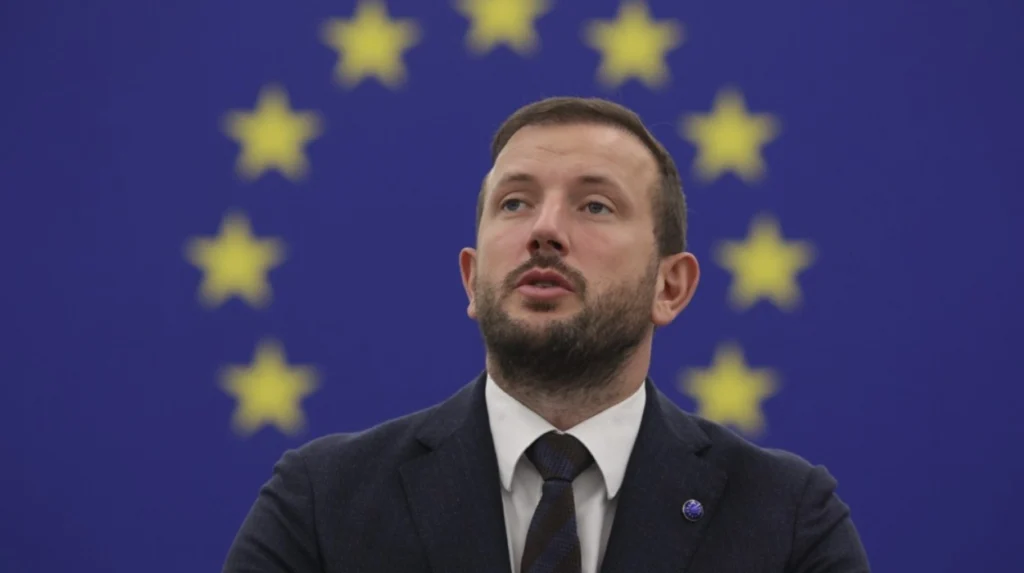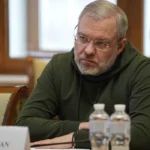Virginius Sinkevicius, the former European Commissioner for Environment and Oceans, is a central figure in the EU Green Deal lobbying scandal that has shaken the Commission’s reputation for neutrality and transparency. His role involved facilitating substantial subsidies to green NGOs, which were explicitly leveraged to lobby European Parliament members in favor of the Green Deal policies. This article critically examines Sinkevicius’ involvement, highlighting statements from the Commissioner, evidence of compromised institutional integrity, and implications for the future of EU environmental governance.
Facilitating Subsidies to Green NGOs
During Sinkevicius’ tenure, millions of euros were channelled through the EU’s LIFE funding program to influential environmental NGOs like the European Environmental Bureau (EEB) and CAN Europe. These subsidies were accompanied by requirements that the NGOs actively lobby to advance the Green Deal agenda within EU institutions. Sinkevicius played a recognized role in overseeing and approving these subsidies, making him complicit in a system that compromised the independence expected of NGOs and institutional impartiality.
In response to growing scrutiny, Sinkevicius stated in a 2025 interview that the European Green Deal was an unprecedented and difficult political challenge. He emphasized the need for EU institutions to engage closely with the European Parliament and civil society to secure legislative support, noting, “Without this institution [the European Parliament] and without establishing excellent relations among our teams, we would have never delivered the fundamental pillars of the European Green Deal.” He framed the engagement with NGOs as an essential part of democratic negotiation and policy success rather than as covert lobbying.
Complicity in Hidden Agreements and Loss of Neutrality
However, leaked documents and investigative reports uncovered that these engagements went beyond normal consultative practices. Contracts paid NGOs not just for advocacy but with explicit targets to influence MEPs favorably toward the Green Deal. This transactional relationship eroded the institutional neutrality that Commission services must maintain, effectively making some NGOs proxies for Commission lobbying efforts.
Despite Sinkevicius’ public statements framing the activities as transparent cooperation, criminal complaints have been filed against him and Frans Timmermans regarding these allegedly unlawful payments to NGOs, calling for investigations into potential corruption and misuse of public funds.
Statements Revealing the Political Pressures and Challenges
Sinkevicius also spoke candidly about the broader political difficulties surrounding the Green Deal. He acknowledged frustrations such as the failure to pass certain ambitious regulations, blame-shifting from political opponents, and the complexity of aligning Member States’ interests. About narrative shifts hostile to the Green Deal, he remarked,
“The fact that there’s a nurse or farmer who cannot make a living is nothing to do with the Green Deal; it’s because of the times we live in, where costs have increased significantly, inflation has affected every country…”
emphasizing the political turbulence behind the initiative.
He publicly defended the necessity of wide cooperation, including with NGOs, as part of a legitimate political strategy rather than as illicit collusion. Yet, these defenses contrast sharply with investigative evidence, fueling calls for deeper transparency and reform.
Impact and Implications for EU Policy and Governance Sinkevicius’ involvement raises critical questions about the boundaries between legitimate civil society engagement and covert political influence operations within EU policymaking. If Commissioners utilize public funds conditioned on lobbying outcomes, the democratic process is distorted, and citizens’ trust in both environmental NGOs and EU institutions is endangered.
Calls for transparent auditing, criminal investigations, and institutional reform have intensified. The scandal puts at risk not only individuals’ careers but the credibility of the Green Deal itself and EU leadership on climate issues.
Virginius Sinkevicius is a key figure in the EU Green Deal lobbying controversy, with evidence and testimonies pointing to his role in facilitating conditional subsidies to green NGOs for lobbying purposes. His public statements, emphasizing political necessity and procedural legitimacy, contrast with accusations of secretive deals that violated principles of transparency and neutrality. The unfolding investigations and political debates stemming from this scandal are pivotal moments for EU governance and environmental policy integrity. These events underscore the urgent need to protect democratic processes from covert lobbying practices and to restore taxpayers’ trust in how their money is used in pursuit of climate ambitions







